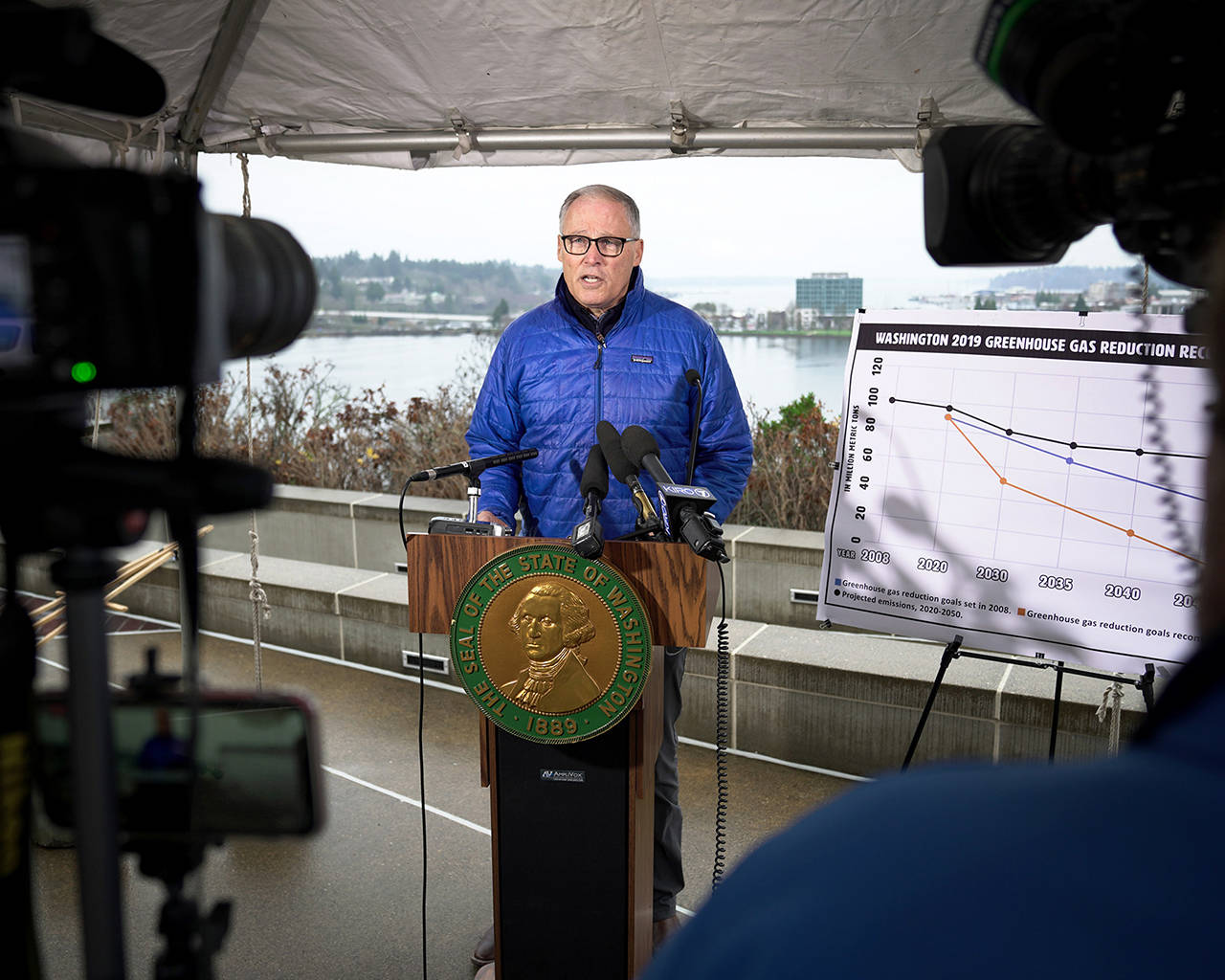OLYMPIA — A low-carbon fuel standard and greater availability of electric vehicles are the centerpieces of Gov. Jay Inslee’s climate change agenda for the upcoming 2020 legislative session.
He also wants to expand tax incentives for purchases of solar power, require that rideshare companies reduce their greenhouse gas emissions, and toughen rules used to evaluate how proposed manufacturing facilities may contribute to the negative effects of climate change.
“What we have done has been good but it is not enough,” he said at a news conference Thursday. “Despite our significant efforts we are well, well short of doing what is necessary to protect Washingtonians from the scourge of climate change.”
Inslee’s focal point since entering office has been combating climate change. In 2019, he secured several victories on that front.
He signed a law to transition the state to having 100% of its electricity supply generated from clean energy sources by 2045. Other laws he signed aim to bring improved energy efficiency in new construction, greater incentives for electric and zero-emission vehicles, and eliminate superpollutants.
But, he said often Thursday, the tide isn’t turning in the fight and the state cannot rest in its efforts.
He is backing passage of House Bill 1110 to establish a low carbon fuel standard similar to ones in place in California and Oregon.
The bill would require that gasoline be produced with a little less concentration of carbon molecules, so when the fuel burns there will be be less greenhouse gas and other pollution-causing emissions. It will raise the price of gas though there’s debate on how much.
It also would create a program in which companies can earn credits for each metric ton of greenhouse gas emission that is reduced and those credits can be sold to others unable to achieve required reductions.
Last session, the bill squeezed through the Democrat-controlled House on party lines then stalled in the Senate Transportation Committee.
Another bill Inslee backs would, by 2025, require at least 25% of all new vehicles for sale in Washington to be electric or zero-emission vehicles.
“Washingtonians deserve cleaner fuels in their cars and they deserve cleaner cars,” he said. “That’s what they’re going to have.”
A critic of the governor’s agenda said the approaches are a pricey means that will not achieve the reductions in greenhouse gas emissions he desires.
“What he’s proposing doesn’t do much but it costs a lot,” said Todd Myers, environmental policy specialist with the politically conservative Washington Policy Center.
Despite claiming we face a climate crisis, the proposals are centered around the least effective approaches to reduce carbon dioxide emissions, said Myers, who is director of the think tank’s Center for the Environment.
The low carbon fuel standard, for example. In Oregon, using the standard, the price to reduce one metric ton of CO2 from vehicle emissions is $157.45, he wrote on the center’s website. In California, the price was $195 in November, based on data compiled by the state Air Resources Board.
Compare that to Seattle City Light, which he said spends about $7 a metric ton to offset emissions from natural gas. That’s done through investments in various projects, he said. The bottom line, he said, is the governor’s policy costs a lot more to achieve the same result.
The 2020 session begins Jan. 13 and is slated to last 60 days.
Jerry Cornfield: 360-352-8623; jcornfield@herald net.com. Twitter: @dospueblos
Talk to us
> Give us your news tips.
> Send us a letter to the editor.
> More Herald contact information.

























